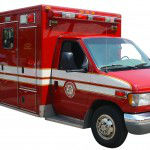 The New Jersey Appellate Division recently ruled that public entities enjoy broad immunity for the conduct of their 9-1-1 Operators, regardless of culpability. Robert E. Levy Esq., of Scarinci Hollenbeck, argued the winning side of the case for the Township of Irvington in the case, Turner v. Township of Irvington, A-5478-11T2.
The New Jersey Appellate Division recently ruled that public entities enjoy broad immunity for the conduct of their 9-1-1 Operators, regardless of culpability. Robert E. Levy Esq., of Scarinci Hollenbeck, argued the winning side of the case for the Township of Irvington in the case, Turner v. Township of Irvington, A-5478-11T2.
The Facts of the Case
Erica Saunders and several of her family members repeatedly placed calls to 9–1–1 while Al Mutah Q. Saunders, Erica’s former boyfriend and father of her five-month old daughter, was attempting to forcefully enter her residence after being served with a domestic violence final restraining order. Erica’s mother placed the first call at 6:30 p.m., reporting that Saunders was outside the door in violation of an outstanding FRO and had kidnapped her granddaughter.
Subsequent calls within the next twenty minutes grew increasingly more desperate as Saunders’ conduct escalated. The dispatchers on duty, James Flagler and Anjeanette Monroig, responded that they would send officers to the scene as soon as they became available. When officers were finally called to the scene at 8:27 p.m., they were not told that a gun was involved or that the suspect was in violation of an FRO. By the time they arrived, Saunders had also already left the area.
In a separate incident one week later, Saunders climbed into Erica’s apartment with a gun and forced her to leave the home with their child. When he encountered Erica’s father in the driveway, Saunders shot him. Saunders then forced Erica to leave the scene with him. Saunders was eventually arrested after a four-hour standoff.
Erica and her father subsequently sued the Township of Irvington, the emergency dispatchers, and Saunders. The allegations against the Township were premised on both vicarious and direct liability, namely that the Township was liable for the conduct of its 9–1–1 operators who acted unreasonably and with gross negligence in carrying out ministerial duties.
The Court’s Decision
The Court concluded N.J.S.A. 52:17C–10(d), which immunizes 9–1–1 operators for conduct that is not wanton and willful, and N.J.S.A. 59:2–10, a general Tort Claims Act provision which immunizes public entities for the wanton and willful conduct of their employees, together prevent the Township from being held liable for its operators’ conduct regardless of their level of culpability.
As explained by the court, the New Jersey 9–1–1 immunity statute shields public entity employers and their operators from civil liability for the negligent mishandling of emergency calls. However, in Wilson ex rel. Manzano v. City of Jersey City, 209 N.J. 558, 588 (2012), the Supreme Court of New Jersey held that the statute is inapplicable if a 9–1–1 operator acts in “wanton and willful disregard for the safety of persons or property.” In this case, the court concluded that the record contained evidence from which a jury could reasonably find the 9–1–1 operators’ acts and omissions constituted a wanton and willful disregard for the safety of persons, so as to defeat the immunity afforded to the Township.
However, the court further held that the municipality was nevertheless insulated from liability under the Tort Claims Act’s limitation on public entity liability contained in N.J.S.A. 59:2-10. The applicable provision states: “A public entity is not liable for the acts or omissions of a public employee constituting a crime, actual fraud, actual malice, or willful misconduct.”
In reaching its decision, the court noted that the Wilson decision did not squarely address public entity’s immunity from respondeat superior liability under the TCA, or the TCA’s interplay with the 9–1–1 immunity statute. Moreover, the court highlighted that the there is nothing in the legislative history of the 9–1–1 immunity statute that indicates an intent to displace the immunity provisions of the TCA.
There are hundreds of recognized emergency call centers in New Jersey. The court’s decision surely will impact each of them. For more information about this case or the legal issues involved, we encourage you to contact a member of Scarinci Hollenbeck’s Public Law Group.
